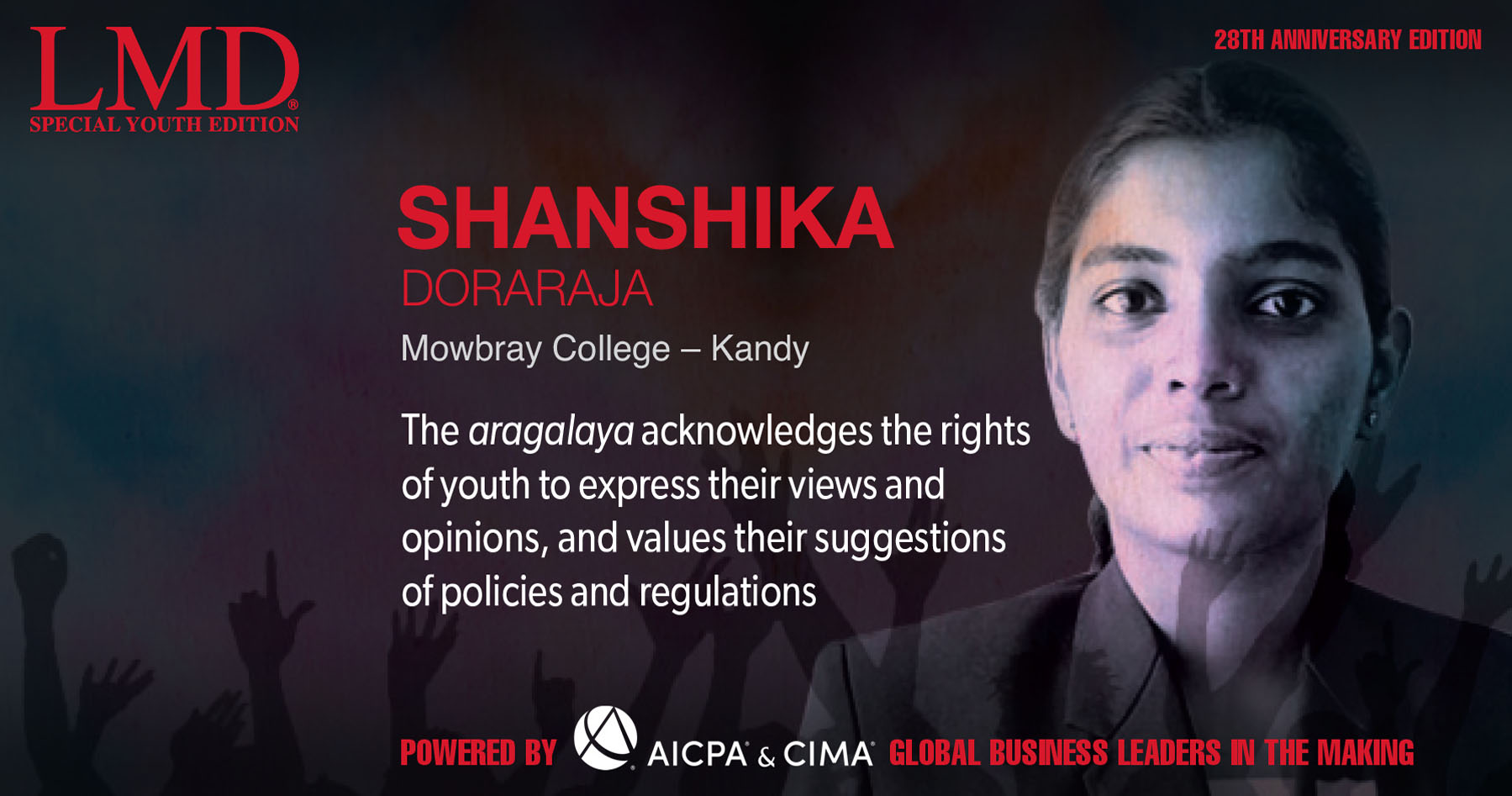Q: In your view, has the aragalaya led to a united Sri Lanka – and if so, is this unity sustainable?
A: The aragalaya has led to one united nation. Various strategies were used to terminate the protests but the aragalaya has united different struggles and given hope to our country.
Therefore, I’d say this is a sustainable unity because the next generation will be aware of all the circumstances faced in this time and how it led to unity despite political agendas. Unless they are influenced and diverted to useless options, there is no chance for racism to raise its head in the generations to come.
Q: How do you view the aragalaya – and how do you think the voices of the youth should be heard?
A: Aragalaya means struggle. The country is struggling to meet its fuel, food and financial commitments. People were on the streets in a struggle against a government that has failed them, demanding the resignation of the president and all 225 members of parliament.
The protest is carried out mostly by the middle class population who are incensed by the rising prices of fuel and spiralling inflation. The protests erupted spontaneously with no political affiliations and it is evident that the youth are spurred on by the anger against the country being looted.
Many assume that children and youth lack the competence or experience to participate in a struggle, as traditional beliefs and sociocultural attitudes prevent children and young people from speaking up in front of adults, and engaging in political processes affecting them.
However, they have the capacity to understand and experience the issues affecting them. The aragalaya acknowledges the rights of youth to express their views and opinions, and values their suggestions of policies and regulations.
Q: As far as our education system goes, what are the pros and cons?
A: Sri Lanka’s education system has produced many world class scholars and professionals. The literacy rate is higher than in most of the developing South Asian countries. Students are allowed to learn various aesthetic subjects, technology and vocational studies other than the traditional lineup of subjects.
However, the evaluation method is questionable. Students are unable to follow their dreams due to the cut off marks and university entrance evaluation system. I suggest that opportunities for higher studies are made available to students who are talented differently.
Q: Do you see yourself remaining in Sri Lanka – or returning to Sri Lanka – or do you think it’s best to migrate?
A: Today, we are battered by the ongoing economic crisis and lack of basic necessities. I feel it is better to migrate for a short time in search of a better standard of living. In recent days and weeks, more than 200,000 passports have been issued by the immigration department. This reflects an urge to get away from the crisis.
The economic turmoil has affected millions of youngsters who are the future of this country. All the schools and universities have been closed; and due to a lack of paper, even exams have been postponed. This situation will not provide us with an effective education system.
We must make a path for our own lives; no one else will do it for us. Therefore, migrating for a short time (10-15 years) will benefit our family in many ways. I hope to apply for scholarships after my A-Levels to obtain a higher education and professional certifications so that I’ll be able to serve my country in a proper way when I return.
MESSAGE TO THE YOUTH
Raise your head high and leave all the fear of mind behind. Never step back when storms arise – instead, face them with courage.
SRI LANKA: FIVE BURNING ISSUES
Lack of basic necessities
Inflation and near depletion of foreign exchange reserves
Domestic expenditure exceeds national income
Uneducated politicians in parliament and mismanagement of government
Inefficient education system
ROLE MODEL
Dhammika Perera – For his entrepreneurial mind, leadership skills, substantial investments in different sectors and implementation of new strategies.
SUMMARY
We live in an era of uncertainty in which we cannot predict what will happen in a few days. The economic crisis has burdened us in many ways. To overcome this turmoil, new short-term strategies should be taken and implemented as soon as possible to avoid a huge disaster.
The voices of the youngsters of this country should be heard and responded to, and a real solution provided. A real system change is demanded by all citizens of Sri Lanka.


